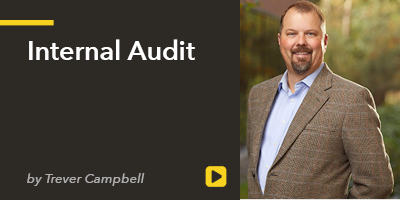
Risk Advisory
Every business is concerned with protecting their assets, preventing losses, and maximizing performance. But without adequate benchmarks and controls in place, the business can’t be certain they are functioning at peak performance – a perfectly designed control is useless if nobody is using it. That’s where our Risk Advisory team and an internal audit can help.
Kernutt Stokes offers three types of internal audits: a compliance audit, a financial audit, and a performance audit.
Compliance audits focus on adherence to contract terms, policies, procedures, laws, and regulations, often uncovering inefficiencies in the process as well. Financial audits assess the safety of your assets, including evaluating the company’s separation of duties and other controls to minimize opportunities for fraud. Performance audits, also called operational audits, examine the use of resources to evaluate whether they are used in the most effective and efficient manner to fulfill the organization’s objectives. This includes reviewing existing benchmarks and best practices, or establishing new ones, and monitoring controls over time.
Kernutt Stokes also offers risk assessments, a process that provides organizations with a comprehensive risk profile of their operations which aid in strategic decision making and optimal allocation of resources. Risk assessments often make it easy to see which areas would most benefit from an internal audit and help to create a comprehensive audit plan that ensures no area of the business is forgotten.
Risk Advisory services are scalable to meet the needs of your business. Whether you only want one audit or many, services can range from a single one-time consulting engagement to a year-round audit provider, also known as outsourced or co-sourced auditing. We work with a variety of industries, including higher education, state government agencies, local municipalities, and private businesses to either integrate with your existing internal audit team or step in as your full-service internal auditors.
We take the “internal” part of internal audit seriously; our approach is to be a part of your organization and our value is in finding collaborative solutions, not problems, so your business can be more successful. When you work with our internal audit team, you not only work with CPAs, but also certified fraud examiners (CFEs), and certified internal auditors (CIAs). We adhere to the International Professional Practices Framework and the International Standards for the Professional Practice of Internal Auditing, guidance provided by the leading organization of internal audit, the Institute of Internal Auditors.
We look forward to working with your business.

The Risk Advisory team is led by Partner-in-Charge Trever Campbell (center).
Let’s talk about your business!
Other Services
Learn more about our other services for your business.
Tax Consulting and Compliance
Retirement Plan Services
Virtual Accounting
Accounting Software Solutions
Business Consulting



